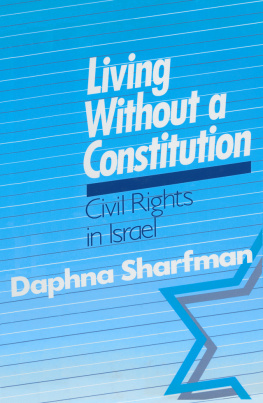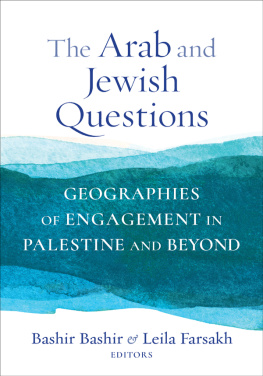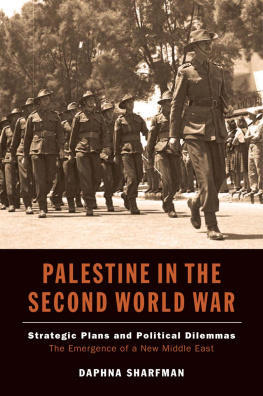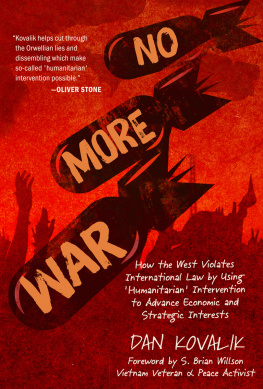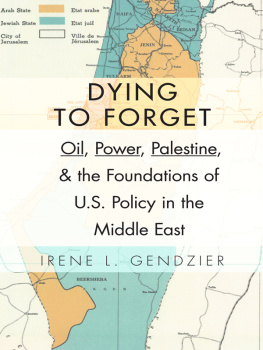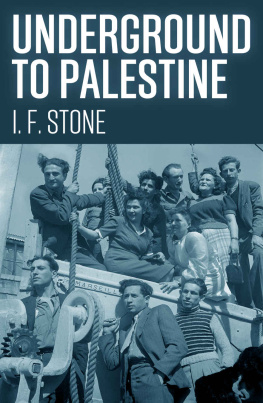Refugees, Human Rights and Realpolitik
This book presents a multidimensional case study of international human rights in the immediate post-Second World War period, and the way in which complex refugee problems created by the war were often in direct competition with strategic interests and national sovereignty.
The case study is the clandestine immigration of Jewish refugees from Italy to Palestine in 19451948, which was part of a BritishZionist conflict over Palestine, involving strategic and humanitarian attitudes. The result was a clear subjection of human rights considerations to strategic and political interests.
Daphna Sharfman is a lecturer and former chair of the Political Science Department, Western Galilee College, Israel. She is the author of books and articles in the fields of human rights, Israeli government, human rights and foreign policy, and the British Mandate of Palestine.
Routledge Studies in Modern European History
58 The Peace Discourses in Europe, 19001945
Alberto Castelli
59 Israels Path to Europe: The Negotiations for a Preferential Agreement, 19571975
Gadi Heimann and Lior Herman
60 Liberalism in Pre-revolutionary Russia
State, Nation, Empire
Susanna Rabow-Edling
61 Bringing Cold War Democracy to West Berlin
A Shared German-American Project, 19401972
Scott H. Krause
62 Greeks without Greece
Homelands, Belonging, and Memory amongst the Expatriated Greeks of Turkey
Huw Halstead
63 The Mediterranean Double-Cross System, 19411945
Brett E. Lintott
64 Ignoring the Nations Call
National Indifference and the History of Nationalism in Modern Europe
Edited by Maarten Van Ginderachter and Jon Fox
65 Food and Age in Europe, 18002000
Edited by Tenna Jensen, Caroline Nyvang, Peter Scholliers and Peter J. Atkins
66 Utopia and Dissent in West Germany
The Resurgence of the Politics of Everyday Life in the Long 1960s
Mia Lee
https://www.routledge.com/history/series/SE0246
First published 2019
by Routledge
2 Park Square, Milton Park, Abingdon, Oxon OX14 4RN
and by Routledge
52 Vanderbilt Avenue, New York, NY 10017
Routledge is an imprint of the Taylor & Francis Group, an informa business
2019 Daphna Sharfman
The right of Daphna Sharfman to be identified as author of this work has been asserted by her in accordance with sections 77 and 78 of the Copyright, Designs and Patents Act 1988.
All rights reserved. No part of this book may be reprinted or reproduced or utilised in any form or by any electronic, mechanical, or other means, now known or hereafter invented, including photocopying and recording, or in any information storage or retrieval system, without permission in writing from the publishers.
Trademark notice: Product or corporate names may be trademarks or registered trademarks, and are used only for identification and explanation without intent to infringe.
British Library Cataloguing in Publication Data
A catalogue record for this book is available from the British Library
Library of Congress Cataloging-in-Publication Data
A catalog record has been requested for this book
ISBN: 978-1-138-28007-6 (hbk)
ISBN: 978-1-315-27613-7 (ebk)
This book presents a multidimensional case study of international human rights in the immediate post-Second World War period. My aim is to analyse the low level of importance accorded to the complex refugee problems created by the war, which were often in direct competition with strategic interests and national sovereignty.
The case study is the clandestine immigration of Jewish refugees from Italy to Palestine in 19451948, which was part of a BritishZionist conflict over Palestine, involving strategic and humanitarian attitudes.
My overall objective is to examine the case from four different points of view: British, American, Italian and that of the Zionist movement in Palestine and its affiliated global organizations, as well as to demonstrate that interests lying behind the scenes really determined the fate of thousands of Holocaust survivors. The book charts, mostly in chronological order, the fundamental positions of the main players immediately after the ending of the Second World War and follows the central developments in immigration until the establishment of the State of Israel on 15 May 1948.
My aim is to offer a concrete study showing key aspects of refugees human rights, following the narrative of the human rights chain of contradictions. This chain leads from sovereignty and strategic interests, all the way to the people whose rights have been denied in some cases. My initial focus will be on the interpretation of human rights emerging from the formal and somewhat Machiavellian diplomatic corridors in Britain and Italy regarding the refugees in the camps and those on board overcrowded ships taking the clandestine immigration routes. I will present the story of the crucial link which is sometimes lost sight of in conventional discussions of interests, legislation and international agreements.
The second focus will be on the role of the Jewish refugees as individuals: did they play an active role or were they passive participants while conflicts and decisions concerning them were debated over their heads? How did they face the challenge of regaining responsibility for their own futures and retrieving their human dignity?
The third focus will be on the political and normative tension between the individual refugees human rights and his/her collective rights. Did the refugees aspire to become political players? Or were their hopes for new and better lives used as part of a wider political strategy, namely the Zionists struggle over Palestine that was taking place at that time?
The post-war British Labour government sought to strengthen Britains position in the Middle East and to find a politically viable solution to the JewishArab conflict. The US involvement focused on key diplomatic events, such as the Anglo-American Committee in 19451946 and President Trumans pressure for the immigration of 100,000 Jews to Palestine, which was rejected by the British government. The United States developed separate strategic interests in the Middle East, which were sometimes promoted in a clandestine way, while ignoring British requests for support. Italys attitude was more complex, taking into consideration its inferior status and economic dependence on the Allies, as well as its recent Fascist history. At that point Italy still did not enjoy full sovereignty but hoped to regain its place in the international arena and progress towards economic recovery. The Zionist policy centred on the struggle for the creation of a sovereign Jewish state in Palestine, combined with the mission to offer immediate assistance to survivors of the Holocaust and take them to Palestine. Their crucial aim was to combat their opponents claim that, following the Holocaust and the death of six million Jews, a Jewish state was not actually needed and that the survivors should return to their countries in Europe. The clash over the clandestine immigration of Jewish refugees was the focus of the BritishJewish struggle until the last days of the British Mandate of Palestine. The role of the Holocaust survivors the potential illegal immigrants was significant: the personal misery that they endured in the Nazi concentration camps and their individual and collective human rights were brought to the fore through their actions and suffering, as well as through their commitment to settling in Palestine. The conflict with the British took place in full view of the world press and public opinion. The events demonstrated the dependence of the refugees on policies drawn up by foreign powers and the disregard of their human rights. They also reflected the refugees efforts to change their passive roles and to gain control over their own fates. (The Hebrew word for illegal immigrants during that period was


